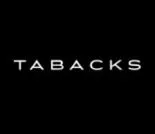As a result of the recent looting, destruction of property and criminal activities primarily in KwaZulu Natal and parts of Gauteng, business owners are surely turning to their insurers to help them recover the costs of their losses, and to chart a way forward.
The South African Special Risks Insurance Association (SASRIA) has confirmed that it holds sufficient funding to cover claims allowed for in its scope, with every insurance policy in South Africa - whether personal or business - including SASRIA cover.
Cover from the public enterprise non-life insurance company provides insurance protection for damage caused by particular risks such as politically motivated malicious acts, riots, strikes, terrorism, and public disorders.
While there is still some discussion about the origins of the looting that happened in the second week of July 2021, there is no doubt that billions of Rands in damage was caused - and that the damage needs to be repaired as soon as possible, so that the economy in the affected areas can get back on track.
On 12 July, before the full scale of the damage had played out, SASRIA offered a written reassurance that it is well capitalised with a capital adequacy ratio of more than three times, and that it has adequate reinsurance programmes with A rated reinsurers. It also noted that it is confident that it will be able to provide for the claims it anticipates arising out of last week's events.
This is important because, with that communication, SASRIA made it clear that it would be able and available to process any claims arising out of the protests, and the fact that it has sufficient reinsurance is indeed reassuring.
However, complexities are likely to arise due to the sheer volume of claims that are likely to be made in the coming months - not least because the SASRIA office has a limited number of staff that has never had to process an incident of this massive scale.
It is not uncommon for SASRIA claims to take two years - or more - to be processed, indeed, Andersen in South Africa is still acting for a client who claimed following the #FeesMustFall protests two years ago.
The businesses that need to rebuild after last week's protests can simply not wait that long - or longer - to have their claims processed and paid.
In addition to these businesses not being able to trade, earn income, and pay salaries, the implications for business interruption insurers are also stark: the longer it takes for a SASRIA claim to be paid out, the greater the business interruption claim too.
With estimates of the cost of the damage varying between R3.5bn and R12bn, Masondo has already noted that claims will take longer than normal to finalise.
It's been interesting to see some insurers offer an interim solution until SASRIA claims are processed and paid, with SASRIA MD, Cedric Masondo, noting on 16 July 2021 that uncertainty about the quantification of losses or damages from the unrest remained - and that claims had yet to be made or investigated by loss adjusters.
It's also heartening to hear that SASRIA has instructed insurers to process claims under its oversight that are for less than R1 Million.
However, perhaps the Government needs to take the lead and set up a transitional fund, not unlike the TERS fund that was created to cushion the blow of COVID-19 lockdown-restrictions, to help businesses navigate back to normal while SASRIA processes claims, so that businesses affected by the crisis can get back up and running sooner rather than later, and that their employees can earn an income again - avoiding even more pressure on Government.
This may even be more of an essential intervention if indeed SASRIA does not have the reserves or reinsurance that was initially suggested in its initial communication with the market, and if anticipated claims reach the R20 billion mark, well beyond its existing R10bn war chest.
The content of this article is intended to provide a general guide to the subject matter. Specialist advice should be sought about your specific circumstances.
